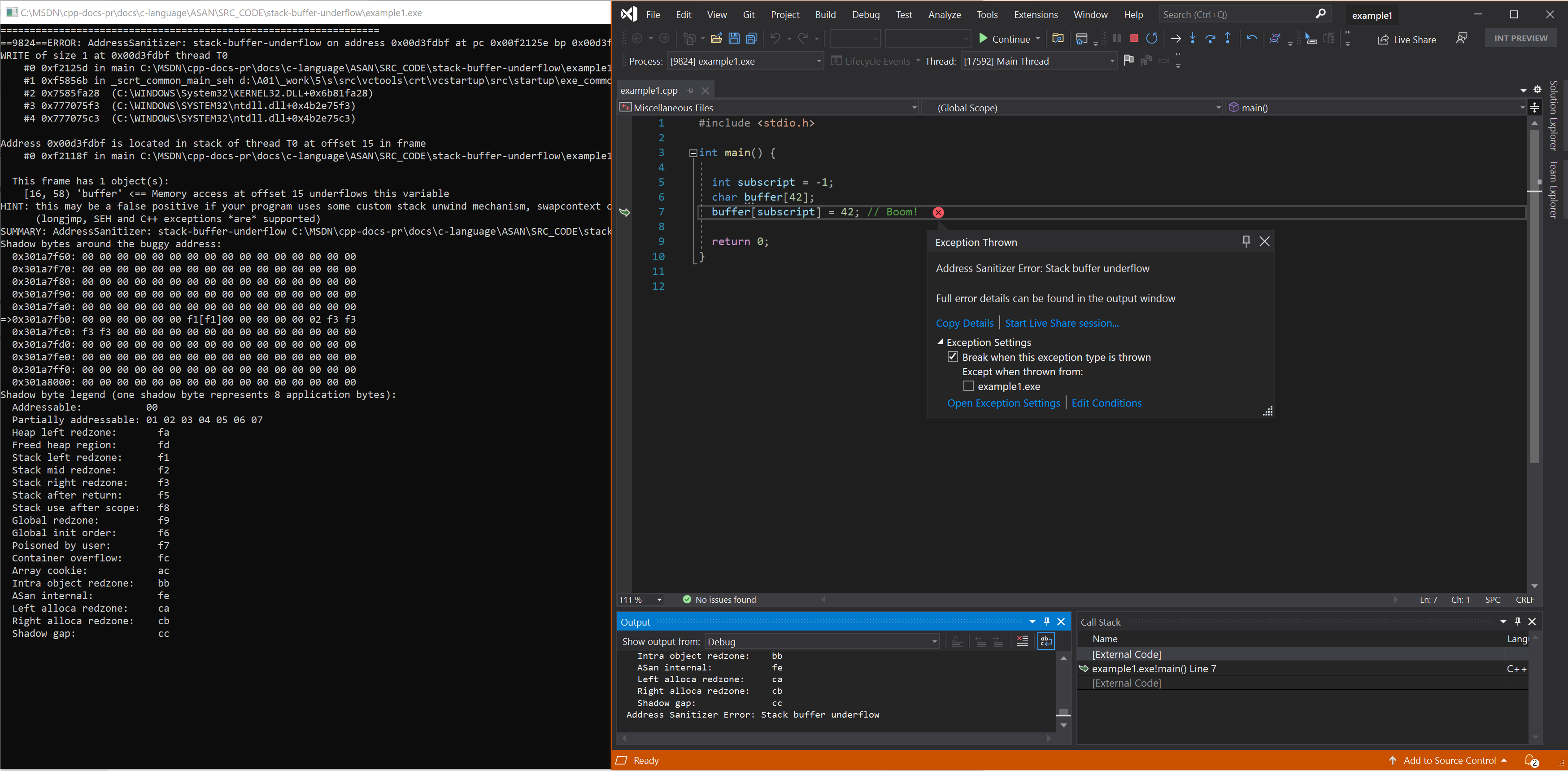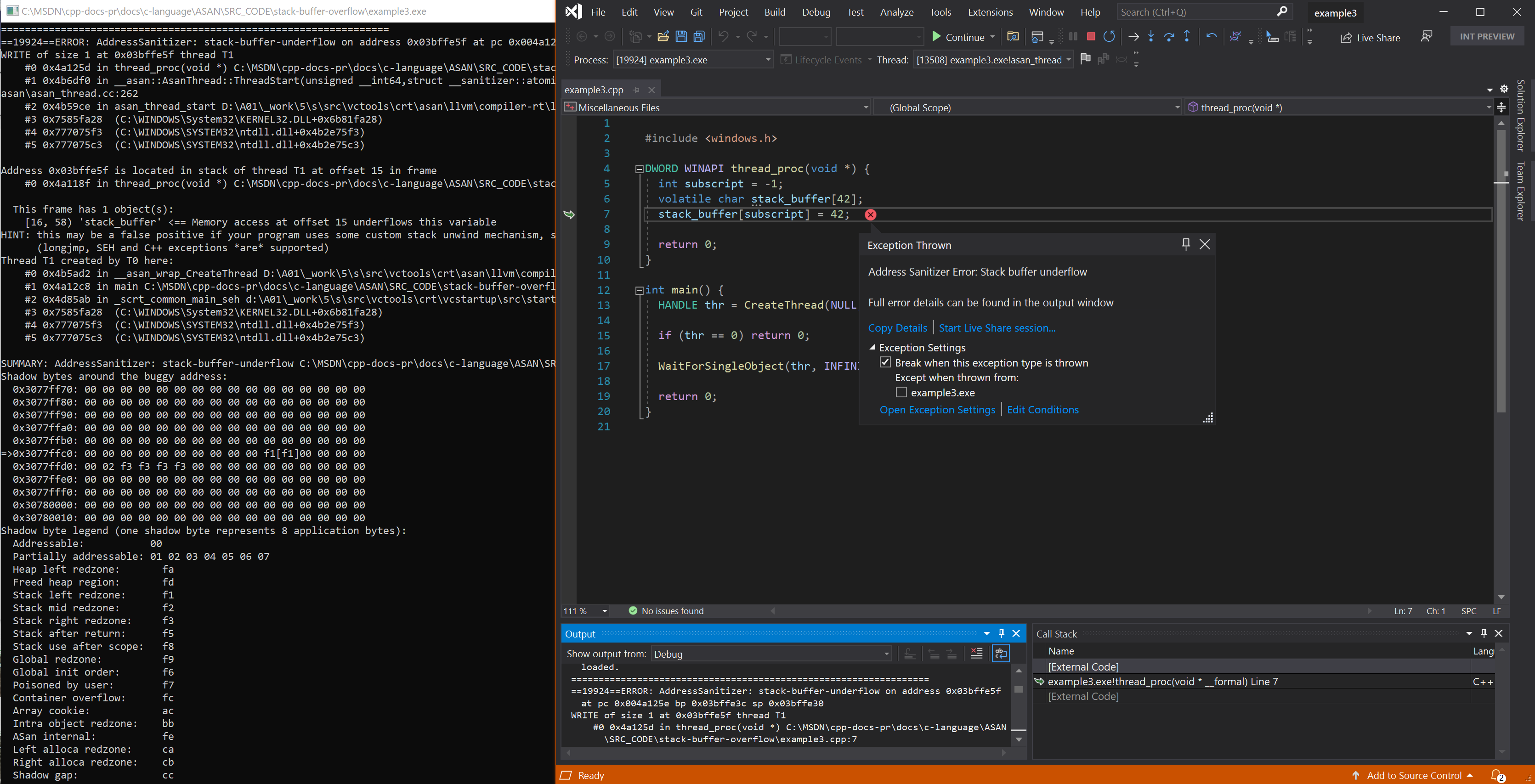Error: stack-buffer-underflow
Address Sanitizer Error: Stack buffer underflow
These error messages indicate a memory access to somewhere before the beginning of a stack variable.
Example - local array underflow
// example1.cpp
// stack-buffer-underflow error
#include <stdio.h>
int main() {
int subscript = -1;
char buffer[42];
buffer[subscript] = 42; // Boom!
return 0;
}
To build and test this example, run these commands in a Visual Studio 2019 version 16.9 or later developer command prompt:
cl example1.cpp /fsanitize=address /Zi /Od
devenv /debugexe example1.exe
ASAN is a form of dynamic analysis, which means it can only detect bad code that is actually executed. An optimizer will remove the assignment to buffer[subscript] because buffer[subscript] is never read from. As a result, this example requires the /Od flag.
Resulting error

Example - stack underflow on thread
// example2.cpp
// stack-buffer-underflow error
#include <windows.h>
DWORD WINAPI thread_proc(void *) {
int subscript = -1;
volatile char stack_buffer[42];
stack_buffer[subscript] = 42;
return 0;
}
int main() {
HANDLE thr = CreateThread(NULL, 0, thread_proc, NULL, 0, NULL);
if (thr == 0) return 0;
WaitForSingleObject(thr, INFINITE);
return 0;
}
To build and test this example, run these commands in a Visual Studio 2019 version 16.9 or later developer command prompt:
cl example2.cpp /fsanitize=address /Zi
devenv /debugexe example2.exe
Resulting error - stack underflow on thread

See also
AddressSanitizer overview
AddressSanitizer known issues
AddressSanitizer build and language reference
AddressSanitizer runtime reference
AddressSanitizer shadow bytes
AddressSanitizer cloud or distributed testing
AddressSanitizer debugger integration
AddressSanitizer error examples